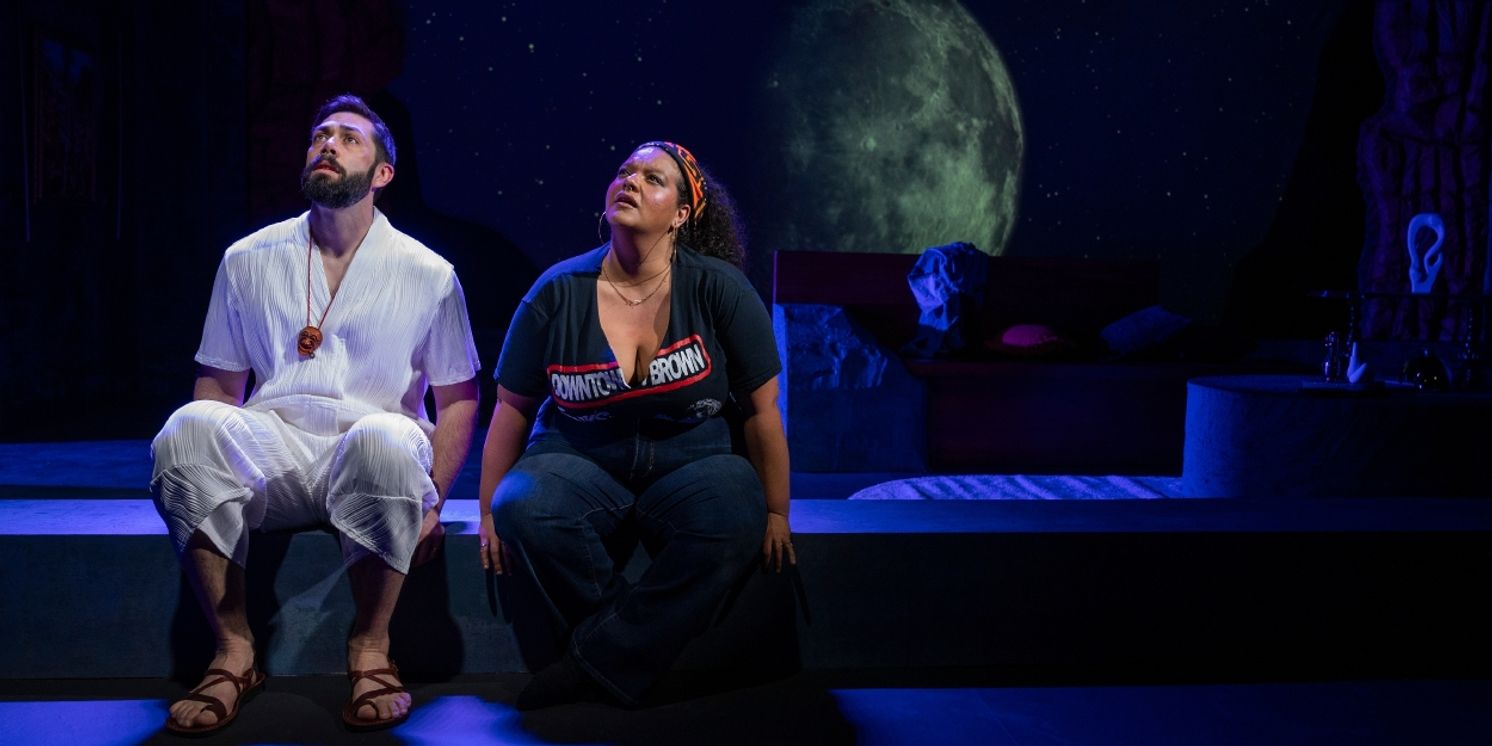Review: BROTHER SISTER CYBORG SPACE at Raven Theatre
The futuristic climate parable runs through March 17.

In his recent biography of a certain multi-billionaire with a penchant for fathering children faster than they can disown him, Walter Isaacson describes his subject as a "man-child" who desires nothing more than to "own the playground" on which we all play. The trouble is that owning the playground doesn't do anything to solve the problems faced by those who play there. The swings still rust. The grass still grows wild. Bullying still runs rampant. There are certain obstacles that money itself can't overcome. In fact, money often acts as blinders that prevent even the most well-intentioned of absurdly wealthy men (and it is almost always absurdly wealthy men who lead these conversations) from taking concrete action with lasting positive consequences. This conflict drives Paul Michael Thomson's newest dramedy BROTHER SISTER CYBORG SPACE, now receiving its world premiere at Raven Theatre. And while this "futuristic climate parable" occasionally loses itself in a flood of introspection, it's buoyed along by a cast of thoughtful and charismatic performers. The play runs through March 17.
In BROTHER SISTER CYBORG SPACE, the engineer and soon-to-be trillionaire Elon (no, not that Elon, but not not that Elon) has received word that the world is on the brink of climate disaster. His solution is to collect 1,000 of Earth's greatest minds and talents, put all of them on a "spacebus," and restart human civilization on Mars. His plans are interrupted by the arrival of his older sister Giselle (Brittney Brown), a radical climate activist who has just shut down the entire global oil industry. With the authorities closing in on Giselle and the clock ticking down until the apocalypse, the siblings debate whether they should cut and run or if the world might still be worth saving. Complicating matters, though, are the intrusive interruptions of Elon's AI virtual assistant, Ava (Charence Higgins), who seems to be developing her own definition of personhood.
It would be easy to write off Elon as being as much of a man-child as his namesake, but actor Matt Bowdren rightfully pushes his performance beyond the superficial. He conveys his character's immaturity and naivety with a wry, understated sense of humor, letting the audience in on the joke without ever falling into caricature. More impressively, Bowdren turns Elon into a surprisingly sympathetic role whose sincerely idealistic ideas might be inspiring if they weren't so misguided. And Brown makes for a worthy scene partner, especially when playing Giselle's free-for-all attitude off of Elon's mounting anxiety. Her character feels the most approachable and relatable, partly because we all know progressive activists like Giselle but also because of Brown's warmth and palpable sense of empathy. Terry Guest deserves credit for making the siblings' sparring almost as physical as it is linguistic, directing the fighting with an exactness that keeps the tension tightly wound even when one character leaves the arena.
Higgins makes the most of a perhaps thankless role, delivering the disembodied Ava's many informative lectures and artificially constructed quips with a dry wit that rivals that of HAL 9000. You can picture Higgins smirking just behind the curtains as her voice darts from device to device across the set, a delightful billionaire's hideaway designed by Steven Abbott that combines elements of a Bond villain's lair and a religious monastery. Audiences may find themselves wishing they could see the performer whose words have guided them through the plot for over an hour. Spoiler alert: when this wish is finally granted, though, Ava's presence loses some of its initial power.
Thomson's script is at its best when it allows its characters to score equal points on one another, when it tricks viewers into nodding in assent with one side of the conflict before cringing at their hero's shortsightedness. For example, after Giselle berates her brother for not including any marginalized people on his spaceship to Mars, Ava reminds her that it is the poor and the Global South that will suffer the most from her crippling of the fossil fuel industry. One of the strongest points that BROTHER SISTER makes is that anyone claiming to have all the answers may not have much of a solution at all. On the other hand, the main plot is punctuated by monologues delivered directly to the audience that frequently feel as though they slow the momentum of the play just as conflicts begin to speed up. Some of these asides serve a clear purpose---such as expanding on a given character's backstory or motivations---but others feel like pointless distractions. Late in the play, Elon (or is it Bowdren?) lectures the audience on how staggering a billion dollars is when translated into measurements of time. The lesson is enlightening and even humorous, but it hits the ears like a TED Talk and forestalls the climax already underway.
It's no surprise that Raven Theatre has once again assembled a talented cast and creative team that fully commits to telling compelling stories that leave audiences with plenty to consider. BROTHER SISTER CYBORG SPACE doesn't end on a hopeful note so much as one of calm resignation: whatever horrors the future may hold, we must all eventually face them together. Unfortunately, those most likely to see this production aren't the playground owners who most need to heed its message.
Photo Credit: Michael Brosilow
Reader Reviews
Videos

